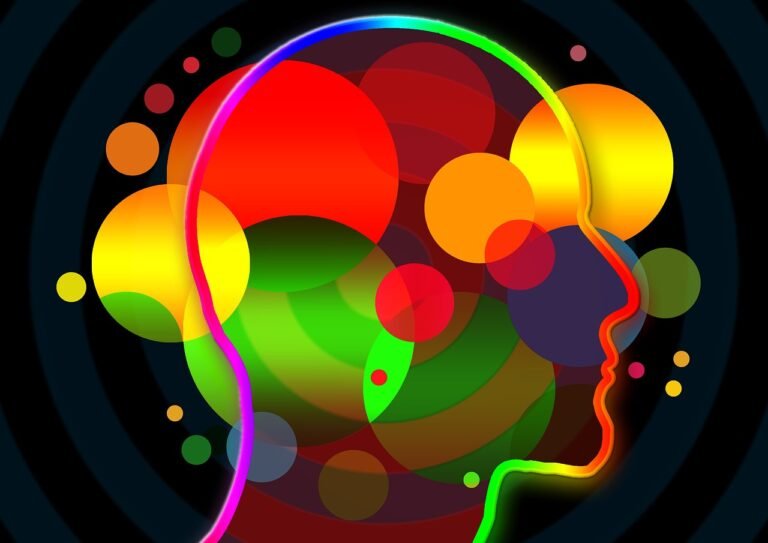Clutter isn’t just about physical mess — it can also weigh heavily on your mental state. A disorganized space can lead to stress, anxiety, and poor focus, making it harder to feel calm and productive. The good news? Decluttering your space can have a powerful ripple effect on your mind, helping you feel more focused, relaxed, and in control. In this article, we’ll explore simple, effective ways to declutter both your physical and mental space

Why Clutter Affects Your Mind
When your environment is cluttered, your mind can feel cluttered too. Studies show that physical clutter increases stress levels and reduces productivity.
🔎 How Clutter Affects You:
- Overwhelms your senses, making it hard to focus
- Increases cortisol levels (the stress hormone)
- Makes decision-making more difficult
- Causes feelings of guilt and frustration
Step 1: Start with Your Physical Space
1.1. Start Small
Decluttering an entire house or workspace at once can feel overwhelming. Start with one small area, like a drawer or shelf.
✅ Pick one area to focus on
✅ Set a timer for 15–20 minutes
✅ Stop when the timer goes off
1.2. Use the “Three-Box Method”
Create three boxes or bags labeled:
✅ Keep – Items you use regularly or bring you joy
✅ Donate – Items in good condition that you no longer need
✅ Trash – Broken or unusable items
1.3. Declutter Room by Room
Break down the process to avoid feeling overwhelmed.
✅ Bedroom: Clear out nightstands, closets, and under the bed
✅ Kitchen: Organize cabinets and toss expired items
✅ Living Room: Remove unnecessary decor and furniture
✅ Bathroom: Discard old products and simplify storage
1.4. Follow the “One In, One Out” Rule
For every new item you bring into your space, remove an old one.
✅ Bought a new shirt? Donate an old one.
✅ Got a new gadget? Get rid of one you no longer use.
Step 2: Declutter Your Mind
2.1. Practice Mindful Journaling
Writing down your thoughts helps you process emotions and clear mental clutter.
✅ Spend 5–10 minutes daily writing about your thoughts and feelings
✅ Don’t overthink — let your thoughts flow naturally
✅ Reflect on what’s causing you stress or anxiety
2.2. Prioritize Your To-Do List
A long, chaotic to-do list creates mental clutter. Focus on the most important tasks first.
✅ Write down your top 3 priorities each day
✅ Break big tasks into smaller steps
✅ Cross off completed tasks to create a sense of accomplishment
2.3. Limit Mental Inputs
Constant notifications, news updates, and social media can overwhelm your mind.
✅ Turn off non-essential notifications
✅ Set a time limit for social media use
✅ Unfollow accounts that drain your energy
2.4. Create Mental Space Through Meditation
Meditation helps calm your mind and improve focus.
✅ Start with 5 minutes of deep breathing or guided meditation
✅ Focus on your breath and let thoughts pass without judgment
✅ Increase meditation time gradually
Step 3: Build Habits to Keep Clutter Away
3.1. Create a Daily Reset Routine
Spend 10 minutes at the end of each day tidying up.
✅ Put items back in their place
✅ Clear surfaces like countertops and desks
✅ Prepare for the next day (set out clothes, pack a lunch)
3.2. Set Boundaries with Your Time and Space
Mental clutter often comes from overcommitting and lack of boundaries.
✅ Say “no” to requests that don’t align with your goals
✅ Block out time for rest and relaxation
✅ Keep your workspace clear and organized
3.3. Adopt a Minimalist Mindset
You don’t need to live like a monk, but simplifying your environment and lifestyle reduces mental and physical clutter.
✅ Focus on quality over quantity
✅ Let go of items and commitments that no longer serve you
✅ Embrace simplicity
Related posts
The Benefits of Decluttering
When you clear both your physical and mental clutter, you’ll experience:
✔️ Better focus and productivity
✔️ Reduced stress and anxiety
✔️ Increased sense of calm and control
✔️ More mental energy and creativity
✔️ Improved sleep and relaxation
Key Takeaways:
✅ Start small — decluttering one area at a time prevents overwhelm.
✅ Use the “Three-Box Method” to sort items quickly.
✅ Limit mental inputs and distractions to clear mental clutter.
✅ Build habits like daily resets and mindful journaling to keep clutter away.
✅ Embrace simplicity and focus on what adds value to your life.
External links









